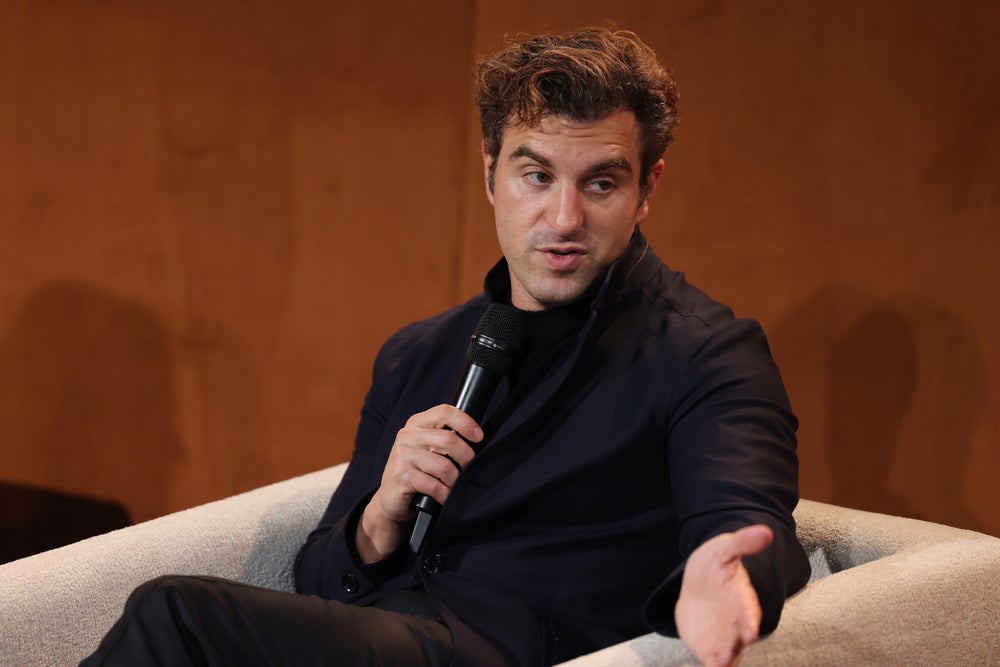Airbnb's CEO Says He Personally Manages 40 to 50 Employees as Direct Reports: 'A Lot of Work' Airbnb CEO Brian Chesky, 43, follows a "founder mode" management style, which focuses on direct relationships with employees instead of a more hierarchical structure.
By Sherin Shibu Edited by Melissa Malamut
Key Takeaways
- Airbnb CEO Brian Chesky told the "Social Radars" podcast that he is personally involved in the management of up to 50 people at Airbnb.
- Chesky said he treats them all as "direct reports."
- Airbnb had a market capitalization of $79.8 billion at the time of writing.
Airbnb CEO Brian Chesky, 43, oversees the hiring, firing, management, and promotion of 40 to 50 employees at the travel startup, taking a hands-on approach to personnel decisions.
On a Saturday episode of the "Social Radars" podcast, Chesky said he stays "as close" as possible to the "people doing the work" at Airbnb and manages staffers who report to the C-Suite executives who also report to the CEO.
"I treat them all as my directs," Chesky said on the podcast. "I skip level, I co-hire them, and I make decisions on whether or not they're working out and leave the company."
Chesky called the process of managing up to 50 people "a lot of work," but "necessary." The core of his management approach is to forge relationships with many individuals within Airbnb.
"What you need to do is you need to have relationships with as many people as possible in the company," Chesky said on the podcast.
Airbnb had a market value of $79.8 billion at the time of writing.
 Brian Chesky, co-founder and CEO of Airbnb, on May 25, 2025. Photo by Gerald Matzka/Getty Images for Airbnb
Brian Chesky, co-founder and CEO of Airbnb, on May 25, 2025. Photo by Gerald Matzka/Getty Images for Airbnb
What Is "Founder Mode?"
Chesky's management style is part of a hands-on approach called "founder mode," which arose from a talk he gave last year at a Y Combinator event.
Founder mode emphasizes direct relationships with employees instead of a hierarchy, highlighting "skip-level" meetings and more active involvement in the company's daily operations. It contrasts with manager mode, which involves more delegation and fewer direct reports.
In an essay describing founder mode, published in September 2024, Y Combinator founder Paul Graham wrote that conventional wisdom had failed founders. For example, the saying "hire good people and give them room to do their jobs" could actually result in "professional fakers" driving a startup into the ground, per the essay. Founder mode means that CEOs interact with their employees beyond just direct reports and are heavily involved in the company, Graham wrote.
Chesky isn't the only founder to take a hands-on approach to managing employees. Jensen Huang, CEO of AI chipmaker Nvidia, still reviews payroll for all 42,000 Nvidia employees "at the end of every cycle," he disclosed on a July episode of "The All-In Podcast."
Huang said that he has his "methods" for going through the data, and taps into machine learning to make it go faster.
"I review everybody's compensation up to this day," Huang said on the podcast. "I go through the whole company."










